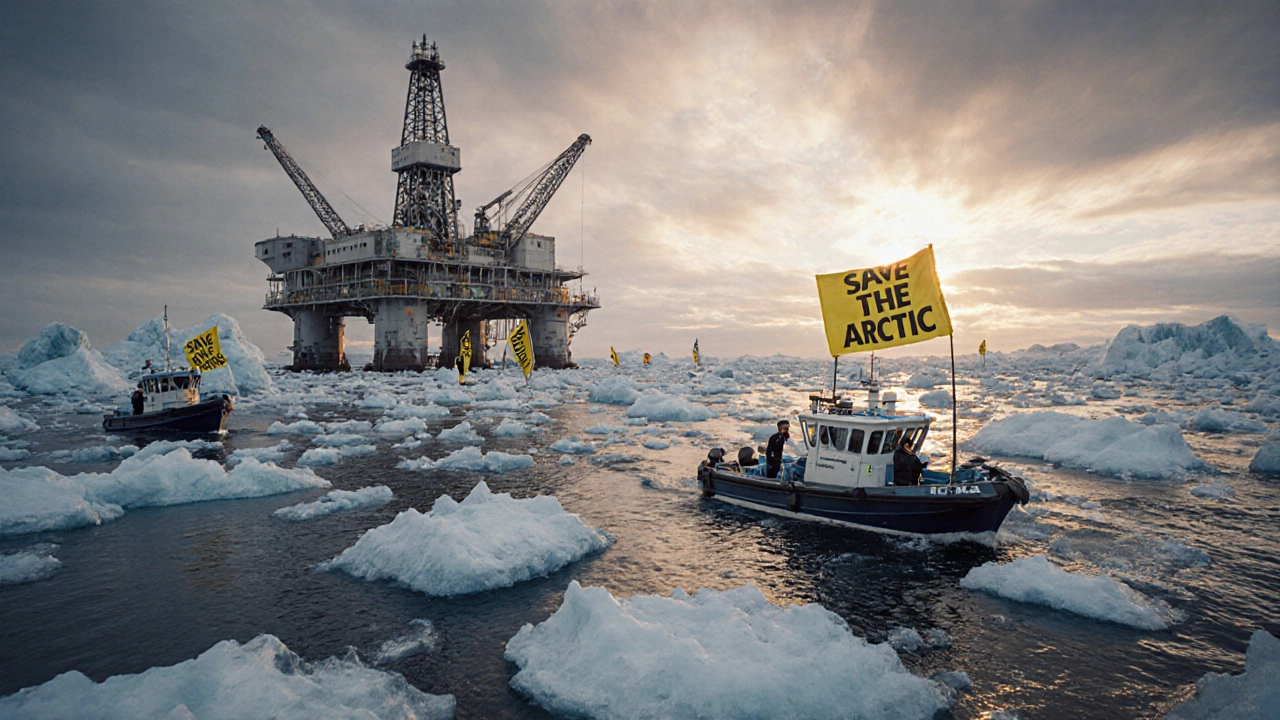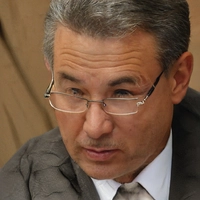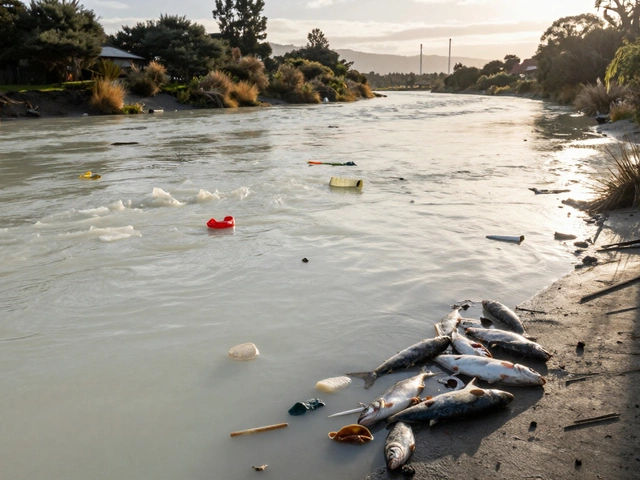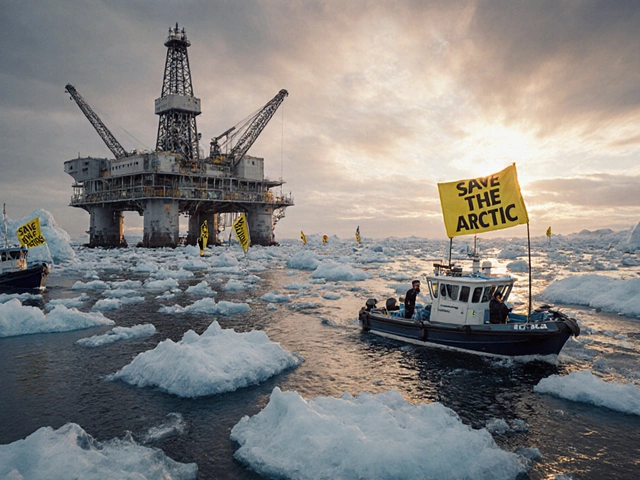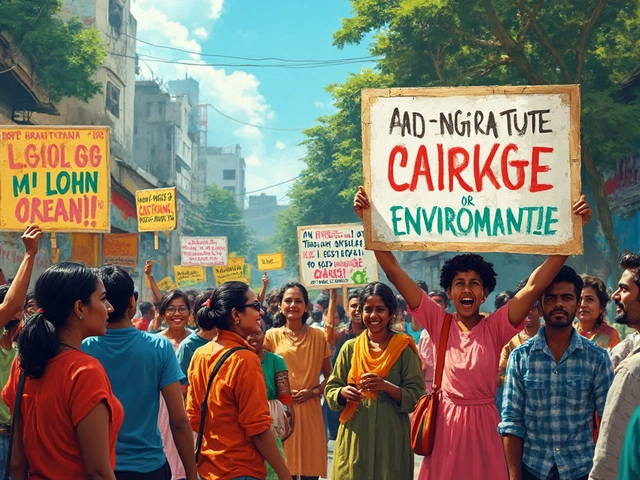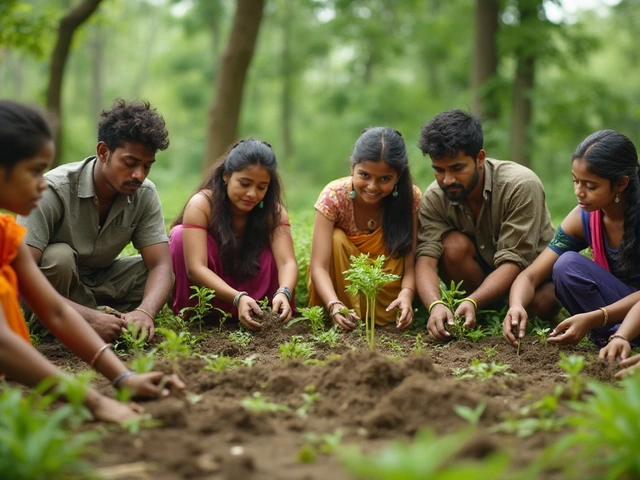You’ve probably seen the headlines: melting glaciers, dying coral reefs, forests burning, oceans filling with plastic. It’s easy to feel overwhelmed. But here’s the truth - real change doesn’t come from waiting for governments or corporations to fix things. It comes from people like you joining forces with environmental groups that are already on the ground, doing the work.
Greenpeace International
Greenpeace isn’t just a name you see on billboards. It’s a global network of activists who take direct action to stop environmental destruction. They’ve blocked oil drilling in the Arctic, exposed illegal logging in the Amazon, and pressured major corporations to drop single-use plastics. Their campaigns are bold, often filmed and shared widely, which makes them hard to ignore. What sets them apart is their refusal of corporate or government funding. They rely entirely on individual donations, which means their priorities stay with the planet, not profit.
Sierra Club
Founded in 1892 by John Muir, the Sierra Club is one of the oldest environmental organizations in the U.S., but its work is more relevant than ever. They don’t just protest - they lobby. They help pass state and federal laws to protect public lands, clean up coal plants, and expand renewable energy. In 2024 alone, they helped block 12 new fossil fuel projects across the U.S. Their local chapters run hiking trips, cleanups, and educational workshops, so you don’t need to be an activist to get involved. Just showing up for a weekend trail cleanup counts.
World Wildlife Fund (WWF)
WWF is known for the panda logo, but their work goes far beyond saving one species. They work in over 100 countries to protect ecosystems - from the Amazon rainforest to the coral reefs of Southeast Asia. They partner with indigenous communities, governments, and businesses to create sustainable practices. For example, in Indonesia, WWF helped reduce deforestation rates by 40% in protected areas over five years by training local farmers in agroforestry. Their science-based approach means they don’t just raise awareness - they measure results.
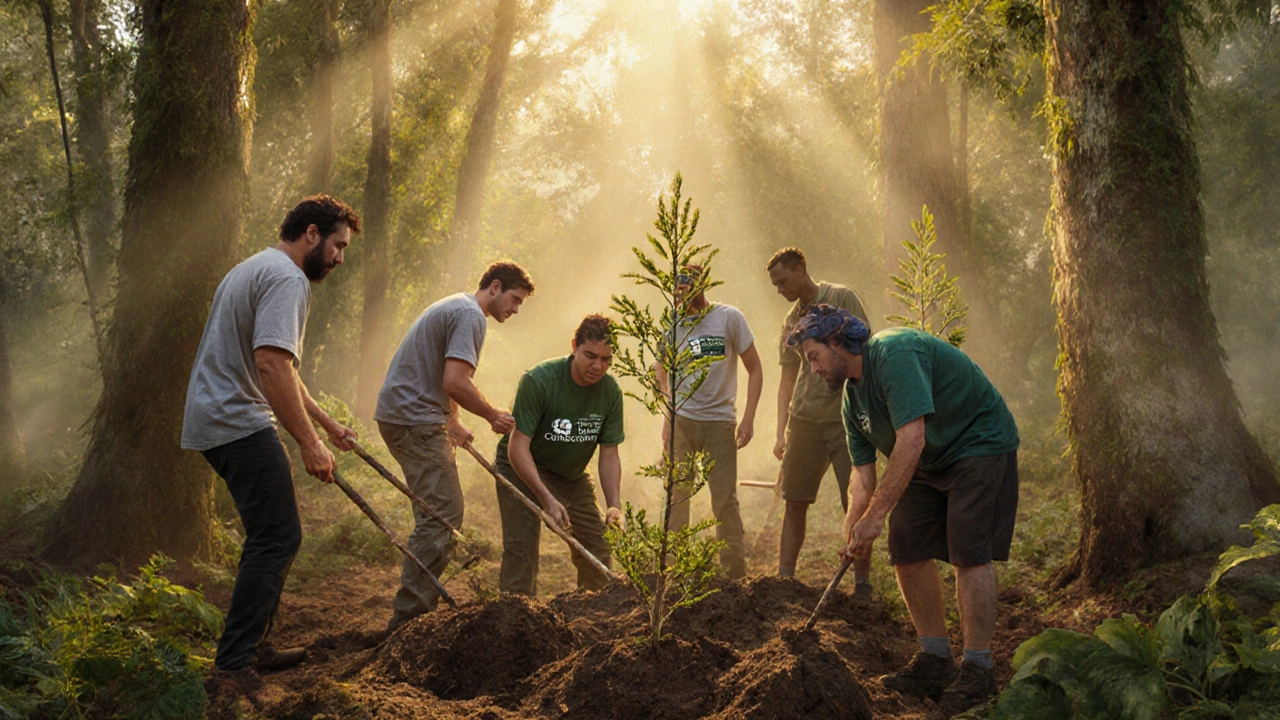
350.org
If you care about climate change, you’ve likely heard of 350.org. The name comes from the scientific threshold: 350 parts per million of carbon dioxide in the atmosphere - the maximum level scientists say is safe. We’re already past that, at over 420 ppm. So 350.org focuses on one thing: getting the world off fossil fuels. They organize mass protests, student strikes, and divestment campaigns targeting banks and universities. In 2023, their global day of action drew over 2,500 events in 188 countries. You don’t need to be an expert. Just show up with a sign, share their petitions, or pressure your local bank to stop funding oil pipelines.
The Nature Conservancy
The Nature Conservancy takes a practical, land-by-land approach. They buy and protect critical habitats - wetlands, forests, grasslands - and manage them for biodiversity. In the U.S., they’ve protected over 125 million acres. In New Zealand, they’ve helped restore native forests around Wellington by removing invasive species and replanting with kānuka and tōtara. Unlike some groups that focus only on protest, they work with farmers, developers, and even oil companies to find common ground. Their model? Conservation that works with people, not against them.
Extinction Rebellion (XR)
Extinction Rebellion doesn’t ask for permission. They shut down intersections, stage sit-ins at government buildings, and use nonviolent civil disobedience to force attention. Their three demands are simple: tell the truth about the climate crisis, act now to cut emissions, and let citizens’ assemblies decide policy. XR has no leaders - it’s a decentralized network of local groups. You can join a local XR chapter in almost any major city. Their strength is in disruption. They make it impossible for politicians to pretend everything’s fine.

Local Groups - Don’t Overlook Them
Big names get the headlines, but real change often starts small. In Wellington, the Wellington Coastal Clean-Up Collective pulls over 10 tons of plastic from beaches every year. In rural Oregon, the Deschutes River Watch trains volunteers to test water quality and report pollution. In Nairobi, the Green Belt Movement, founded by Nobel laureate Wangari Maathai, has planted over 50 million trees. These groups don’t have millions in funding. They have neighbors. They have passion. And they need you.
How to Choose the Right Group for You
Not all environmental groups are the same. Ask yourself:
- Do you want to take direct action, or work behind the scenes?
- Are you drawn to wildlife, oceans, forests, or climate policy?
- Do you prefer local projects or global campaigns?
- Can you commit 2 hours a month, or 20 hours a week?
There’s no right answer. What matters is starting. Even one volunteer hour a month can shift a group’s momentum. Many groups offer training - from how to monitor river pollution to how to run a community workshop. You don’t need a science degree. Just show up.
What Happens When You Join?
Joining isn’t just about signing a petition. It’s about becoming part of a community. You’ll meet people who care as much as you do. You’ll learn new skills - public speaking, data collection, organizing events. You’ll see real results: a river cleaned, a forest saved, a law passed. In 2024, a small group of volunteers in Tasmania helped convince their council to ban single-use plastics in all public parks. That started with three people meeting at a coffee shop.
Environmental groups aren’t magic. They’re made of people. And if you’re reading this, you’re one of them.
How do I find environmental groups near me?
Start with local libraries, community centers, or city websites - many list volunteer opportunities. Search terms like "environmental volunteer [your city]" or "conservation group near me" work well. National groups like Sierra Club or The Nature Conservancy also have chapter finders on their websites. Don’t overlook Facebook groups or Meetup.com - local cleanups and tree plantings are often organized there.
Do I need experience to join an environmental group?
No. Most groups welcome beginners. Whether you’re helping sort recycling at a beach cleanup or handing out flyers at a rally, your time matters. Many organizations offer training sessions for new volunteers. The most important thing is willingness to learn and show up consistently.
Are environmental groups politically biased?
Some groups are more activist-oriented and openly challenge political systems, like Extinction Rebellion or Greenpeace. Others, like The Nature Conservancy or WWF, work across political lines to achieve conservation goals. It depends on their mission. If you’re unsure, check their website’s "About" page or read their recent campaigns. Most are focused on science and action, not partisan politics.
Can I start my own environmental group?
Absolutely. Many successful groups started with just two people. Identify a local issue - maybe a polluted stream, illegal dumping, or loss of native trees. Gather a few friends, research what’s already being done, and reach out to existing organizations for advice. You don’t need funding to start - just passion and a plan. Local councils often provide small grants for community-led projects.
How do I know if an environmental group is legitimate?
Check their website for transparency: Do they list their mission, leadership, and financial reports? Look for registration as a nonprofit in their country (like a 501(c)(3) in the U.S. or a Charitable Trust in New Zealand). Sites like Charity Navigator or GuideStar (for U.S.-based groups) rate organizations based on accountability. Avoid groups that pressure you for donations over the phone without clear information.
